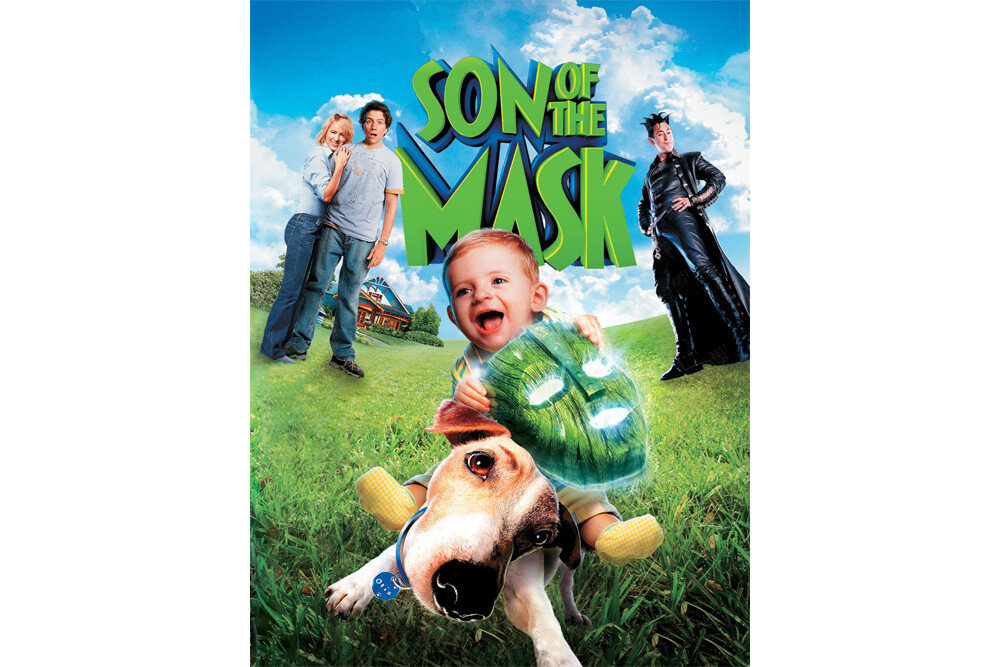4 Gaming Contests That Imploded In The Dumbest Ways

Making money from playing games is the dream of gamers everywhere. But, before the days of esports or streaming, video games were generally just a hobby that carried little potential for profitability outside of bullying nerds for quarters at the arcade. That is, except for when there were contests. To gain publicity and sell out shelves, game publishers have tried to push real-world contests connected to their games with money and valuable prizes as rewards. Some contests have been well done. A lot of them have sucked. Then there are game contests that failed so hard they became the only thing about their games worth remembering ...
Advent Rising's Collectibles Hunt That No One Showed Up For
Advent Rising was going to be gaming's next big series. It was pushed with an aggressive, expansive marketing campaign that presented the game as the next Halo, and it was to be the first entry in a major multimedia franchise. Unfortunately, however, what was supposed to be a legendary sci-fi experience has mostly been forgotten by the general populace, and no one really played it to start with. Nevertheless, if you were gaming in 2005, you might vaguely remember seeing advertisements for it, particularly advertisements that centered around the game's proverbial trick up its sleeve. As the Xbox and PC exclusive prepared to make its debut in May 2005, developer GlyphX and publisher Majesco unveiled their major play to build up hype.
They were launching the game with a million-dollar contest.

Majesco Entertainment
"Quick! Distract players with a million dollars!"
The contest was going to serve as a race to complete a treasure hunt within the game. The first 500,000 people who bought Advent Rising would be given a chance to find hidden collectibles. A contest would be held each week, and the first person to find the collectible and submit the code they found with it online would receive a cash prize. Now, 1 in 500,000 odds sound ... bad, but hey, just being involved in something like this seems exciting, right?
No. The contest flopped. The game flopped. Everything flopped.

Majesco Entertainment
... is a reference that means nothing to anyone because the game totally flopped.
Okay, the first elephant in this room full of elephants is the number of copies of the game sold. Sales figures for the game are inconclusive, but they were absolutely lower than the 500,000 copies that could be used for the contest. Having the contest for the first 500,000 copies indicates that they fully expected that they would break the half a million sales mark. By all accounts, though, they did not reach that goal.
After launching the game, GlyphX and Majesco realized that they were way over their heads and canceled the contest. They claimed that there was no way for the contest to happen fairly, which does make sense. As other entries on this list will show, that's a valid concern. The fact that the game undersold likely also contributed to the failure of the contest. Don't worry, though, because those who did enter the contest were given two free Majesco games of their choosing. So, that's something. Not a million dollars. But something.

Majesco Entertainment
If you thought that gamers were disappointed by the contest's failure, though, just know that GlyphX and Majesco were left much, much worse. They had big plans for Advent Rising. The main series was supposed to be a trilogy, and they had the website "Advent Trilogy" in anticipation of this. There was a short-run comic book series that tied into the universe, a series of novels planned, and a PlayStation Portable spinoff title. However, after the failure of Advent Rising, everything but the comic books (which you can find in your shop's quarter bin) was scrapped.
What sets contests apart from esports is that contests are often meant to be done from home. The point is to give gamers a reason to buy a game, not to have a well-designed competition. Because of this, a layer of trust is integral to these contests. Publishers can try to limit the possibility of cheating, but there is almost no way to completely cut it out.

This distrust was ever-present in the annual million-dollar contest for the MLB 2K series. Unlike the other items on this list, this contest took place several times but still managed to suck.
The first MLB 2K promotional contest was held in 2010 with the launch of, conveniently, MLB 2K10. The contest was simple; the first player to throw a perfect game in MLB 2K10 would win the cash prize. There were a few additional steps, like recording your gameplay and playing on a specific mode for verification, but otherwise, this was straightforward enough. And the first contest had a winner too.
Success! Mission accomplished! And so, this became an annual tradition with the launch of a new MLB 2K title. But as the contests went on, players had questions. By 2012, the challenge had evolved to reward more than one player by having a qualifying tournament, but there were also controversies. Reports came out that one player, in particular, was exploiting the game to make the challenge easier.
A perfect game requires players to not allow a single opposing player to reach a base on offense, and the mode used for the contest was intended to ensure that the computer opponents would not be pushovers. Evidence came out that this supposed cheater was making it so that the computer players were all ... lackluster, thus making the challenge easier. It shouldn't come as a surprise that an unregulated contest like this with such a major prize would have some opportunistic gamers looking for exploits, but this damaged the reputation of future contests. If one player was cheating, why was there any reason to believe that others weren't too?
Don't worry, though. 2K made sure that the 2013 contest was cheater-proof. The novelty of the contest had worn off, though, and better baseball games were on the market. A microscopic shot at winning a cash prize was not worth it when the game itself wasn't that good. This led to MLB 2K13 being the last entry in the series. And if you participated in the contest and didn't win, you can always just say that the other guys cheated. Because they probably did.
Swordquest's $25,000 Tresure Hunt
Gather 'round, weary travelers, and spare me a minute to tell a tale from a distant age, the early 1980s. 'Tis a tale of the ultimate treasure hunt, a multimedia experience that could net its victors prizes valued at $25,000. But alas, despite its grand ambitions, the adventure failed, and the jeweled prizes became lost to time. This is the tale of Swordquest.
Swordquest was, at the time, the most lucrative prize contest in gaming. Atari planned to release four games, and each game would have its own contest. The winner of each contest would win a prize valued at $25,000. After all four prizes were given out, the four winners would compete for a grand prize valued at $50,000. The prizes were intended to resemble treasures as though this were an actual adventure, each made of gold or silver and encrusted with gems. The treasures included a talisman, a chalice, a crown, a philosopher's stone, and a sword.

The first game in the series was Earthworld, which was released in October 1982. The game tasked players with traveling through twelve rooms, representing the twelve zodiac signs. Between rooms, there were small challenges to make Swordquest feel more like a game. The goal of the game was to take objects and place them in rooms. Correct item combinations gave clues. These clues would be the key to winning the real-world treasure.
On its own, the game is incredibly simple. It's an Atari 2600 game, which is to say that there isn't much to it. This is why each Swordquest game came with a comic book. The comic illustrated what was going on in the game's universe, and this was necessary for solving the contest's puzzle. Each clue received in-game would correspond to a panel in the comic, which then gave a word that was part of the puzzle's solution. Using the words from the comic, players could then make a sentence, which served as the ultimate answer to the Earthworld mystery.

5,000 players submitted their answers to Atari, and out of those, there were eight correct submissions. Those who submitted the correct answer were invited to a championship tournament, where they played a special version of Earthworld to crown a final winner.
Contests were held for both Earthworld and Fireworld. However, Swordquest came out at a bad time for video games. In 1983, the video game market collapsed. There were way too many games being made for the Atari 2600, and most of them sucked. People stopped buying games, which caused major financial issues for Atari, and this bled into Swordquest.

Atari
Waterworld, the third game in the series, was given a very limited release, and most doubt that a final was ever held for the game's treasure, a crown. After that, Swordquest was canceled. The last game in the series, Airworld, was never released, and there was never any grand finale with the contest winners for the ultimate prize.
Because of this cancelation, Swordquest has become a sort of mythical part of video game history. People wonder what became of the treasures that were meant to go to the victorious players. Regardless of what happened to the artifacts, they represent a major disappointment. What could have been gaming's ultimate championship faded into a mere memory. By some accounts, those who did win the prizes that were handed out melted them down for money, which is fair. Tens of thousands of dollars are worth more than a talisman made by a video game company.
Nintendo Power rules. From 1988 to 2012, Nintendo's flagship magazine was one of the best-designed magazines on shelves, and it helped give gaming a culture. Early Nintendo players used the magazine to learn about upcoming titles, to help get through challenging, cryptic games, and to connect with other players at a time when being a gamer wasn't as trendy as it is now. It is hard to state just how important Nintendo Power was.

Nintendo
It did have some missteps, though.
One of the most infamous of these was a contest they held in 1995. This was a poll contest, so it did not require gamers to achieve a specific in-game feat like the other contests on this list. It was a simple magazine contest. Mail in a card, and enter to win.
Some winners would get T-shirts or a copy of The Mask tie-in video game for the Super Nintendo, but one winner would get a special prize. They would be cast as an extra in The Mask II.
Ah yes, The Mask II, that famous movie that most certainly exists.
Well, someone did win the contest, but behind the scenes, things weren't looking so great. Jim Carrey did not want to come back for the movie, which meant that The Mask II was stuck in development limbo until being eventually canceled.

New Line Cinema
What did this mean for the contest winner, then? For the longest time, he just faded into obscurity, much like everyone else who won most of those contests. Then, in a funny turn of events, Nintendo printed an apology for letting the contest winner down in their final issue in 2012. However, the winner's identity has since been revealed, and it turned out that he wasn't just left hanging by Nintendo.
In what can only be described as a wholesome outcome, Nintendo kept in contact with the winner while The Mask II struggled with its production problems. When it became clear that the movie wasn't going to happen, Nintendo offered him rewards that quite frankly are much better than an extra role in a sequel. He was given $5,000 and Nintendo games of his choice. Nice work, king. You came out of this all right.
Top Image: Nintendo